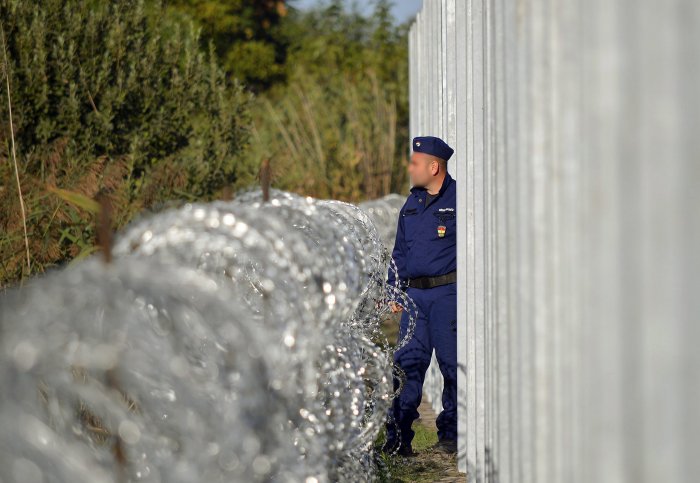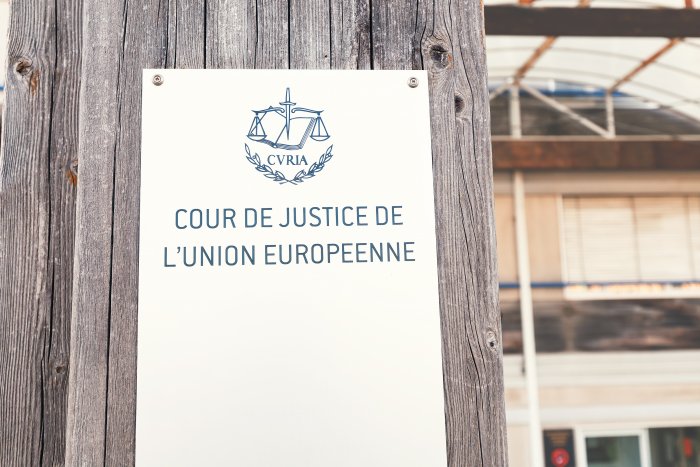Hungary makes aiding asylum-seekers a crime

Hungarian lawmakers pointedly chose the occasion of World Refugee Day, June 20, to approve controversial legislation that makes the promotion and support of illegal immigration a punishable criminal offense. International organizations expressed severe criticism of the law, calling for legal action against Hungaryʼs government.
The package of legislation, dubbed “Stop Soros,” in reference to an alleged plan for managing the migrant crisis which Hungaryʼs government has repeatedly attributed to Hungarian-born investor and philanthropist George Soros, was approved with a vote of 160 for and 18 against, national news agency MTI reported.
The package defines support for illegal immigration in the Criminal Code as offering to initiate an application for asylum to anybody who has arrived from, or passed through on the way to Hungary, any country in which that person was not persecuted.
The first offense will be treated as a misdemeanor punishable by imprisonment of up to 90 days; however, repeat offenses and the support of such illegal activity by material means could result in imprisonment for a period of up to one year.
The package amends the act on asylum rights to prohibit the approval of any application for asylum by a person who has traveled through a country in which they were not persecuted or at risk of serious harm, and where they could have applied for asylum.
According to official government website kormany.hu, Hungaryʼs Fundamental Law (constitution) will also specify that, unless consented to by Parliament, immigrants may not be resettled in Hungary, and those who arrive in Hungary via a safe country and are not threatened with persecution may not be granted asylum.
Hungarian lawmakers approved the relevant amendment to the Fundamental Law with a vote of 159 for and five against. The amendment also requires all state bodies to defend Hungaryʼs constitutional identity and Christian culture, according to MTI.
Defending the legislation on kormany.hu, the government claimed that “Stop Soros” and the related amendment to the Fundamental Law “assert the will of the Hungarian people, providing the country with further powerful protection against illegal migration.”
“This strengthened protection is needed because the mass immigration afflicting Europe is continuous, while the Soros network and the pro-immigration policy of Brussels are creating the threat of attempts to also swamp our country with migrants,” added the statement on kormany.hu.
‘Institutional intolerance’
The passing of the package stirred immediate criticism from several international human rights organizations.
“It is a bitter irony that as the world marks World Refugee Day, the Hungarian Parliament voted today to introduce a law that targets organizations and individuals who support asylum-seekers, refugees and migrants,” said Amnesty Internationalʼs Europe Director, Gauri van Gulik.
“We will push back against the rising tide of institutional intolerance towards refugees, asylum-seekers and migrants and the attempts to stigmatize, intimidate and frighten Hungarian civil society organizations,” van Gulik continued. “The unflinching work of organizations that defend rights in Hungary is more vital than ever, and we are committed to standing shoulder-to-shoulder with them,” she vowed.
In a statement released shortly after the vote, the Open Society Foundations (OSF) urged the European Commission to take immediate legal action against the government of Hungary over the new legislation, which it said violates EU laws. The OSF, the international grantmaking network founded by Soros, called on members of the European Parliament to hold Hungaryʼs government to account “for having violated the EU’s founding principles.”
“The legislation, approved by the Hungarian Parliament today, adds a specific offense to the Hungarian criminal code that claims to affect ‘supporting illegal immigration,’ but defines it in a way that threatens prison sentences for entirely legitimate legal and humanitarian work,” the OSF statement said.
“It is clear that this legislation is not aimed at individuals who knowingly assist fraudulent activity - which is already a crime. Instead, it criminalizes conduct that is legal, and even required, under international law.”
James A. Goldston, executive director, Open Society Justice Initiative.
Legal breaches
A legal analysis by lawyers at the Open Society Justice Initiative found that the new legislation breaches the following EU asylum laws:
- International Protection Procedures Directive 2013/32, which stipulates that asylum seekers have a right to communicate with any organization providing legal or other counseling advice, including at border crossing points and transit zones.
- Reception Directive 2013/33, which provides for the rights to material assistance until an asylum claim is decided, including the right to information on asylum procedures and the right to contact groups providing legal assistance; they should also enjoy the right to free legal assistance and representation in asylum appeals, and the freedom to receive information and advice from organizations and persons other than the government.
- International Protection Qualification Directive 2011/95, which provides for the right to a residence permit if the conditions for asylum or subsidiary protection are met.
- Citizens Directive 2004/38, which requires that third-country national family members of EU citizens are issued with a residence permit.
The amendment S353/A further violates rights that are enshrined in the EU Charter of Fundamental Rights, including the rights to freedom of expression and association, and the right to asylum, the statement added.
Intimidation tactics
The Hungarian Helsinki Committee also released a statement in response to the legislation.
“The primary aim of this legislation is to intimidate, by means of criminal law, those who fully legitimately assist asylum seekers or foreigners, protecting humanitarian values and the right to a fair procedure. It threatens jail [for] those who support vulnerable people. This runs counter to all we consider as the rule of law, European and Christian values,” said the statement.
“The Criminal Code provision (Section 353/A on ‘promoting and supporting illegal migration’) uses vague notions; hence it breaches the criteria of legal certainty,” the statement continued. “The sanctions concerning the activities of civil society organizations clearly breach the right to freedom of expression and the freedom of association, which are protected not only by the Fundamental Law of Hungary but also by the European Union Convention on Human Rights and the European Union Charter on Fundamental Rights.”
The Hungarian Helsinki Committee statement noted that since January 2018, only two persons on average per working day are allowed to enter the transit zones at Hungaryʼs southern border to lodge an asylum application. Between January 1 and April 30, Hungary granted protection status to 267 asylum-seekers and rejected 326 applications.
“A direct consequence of threatening those who assist refugees with imprisonment is that asylum-seekers will be shut off from assistance, as anyone under criminal prosecution will be automatically banned from the border area, including the transit zones,” noted the statement. “Asylum-seekers will hardly be able to appeal an asylum decision without proper legal assistance, advice and representation, which will in practice, be an insurmountable obstacle in their right to have access to court,” it added.
Márta Pardavi, co-chair of the Hungarian Helsinki Committee, declared that the Hungarian government, instead of protecting refugees from persecution, “has decided to join the ranks of the persecutors.”
“Seeking asylum is not a crime. Providing legal assistance to asylum-seekers is not a crime either. Everyone has the right to be informed about the law and to know what to expect during legal procedures,” she noted. “To provide information to defenseless people on their rights, to give a free attorney to people who are unfamiliar with the law, is a fully legitimate activity and is in full respect of European standards and ethics.”
Pardavi vowed that her organization will continue to “firmly and expertly give protection to all of our clients, civil society organizations and human rights in Hungary.”
SUPPORT THE BUDAPEST BUSINESS JOURNAL
Producing journalism that is worthy of the name is a costly business. For 27 years, the publishers, editors and reporters of the Budapest Business Journal have striven to bring you business news that works, information that you can trust, that is factual, accurate and presented without fear or favor.
Newspaper organizations across the globe have struggled to find a business model that allows them to continue to excel, without compromising their ability to perform. Most recently, some have experimented with the idea of involving their most important stakeholders, their readers.
We would like to offer that same opportunity to our readers. We would like to invite you to help us deliver the quality business journalism you require. Hit our Support the BBJ button and you can choose the how much and how often you send us your contributions.








